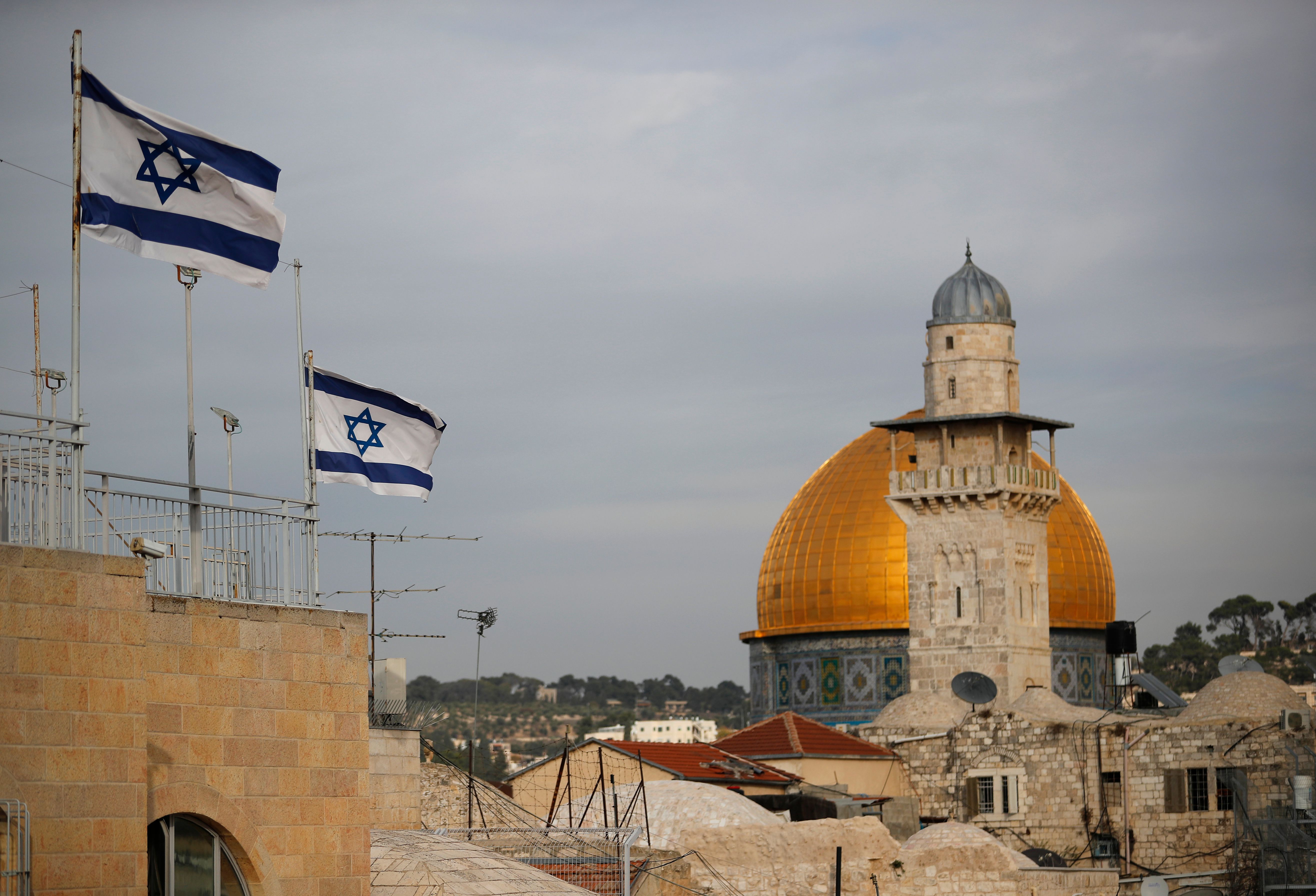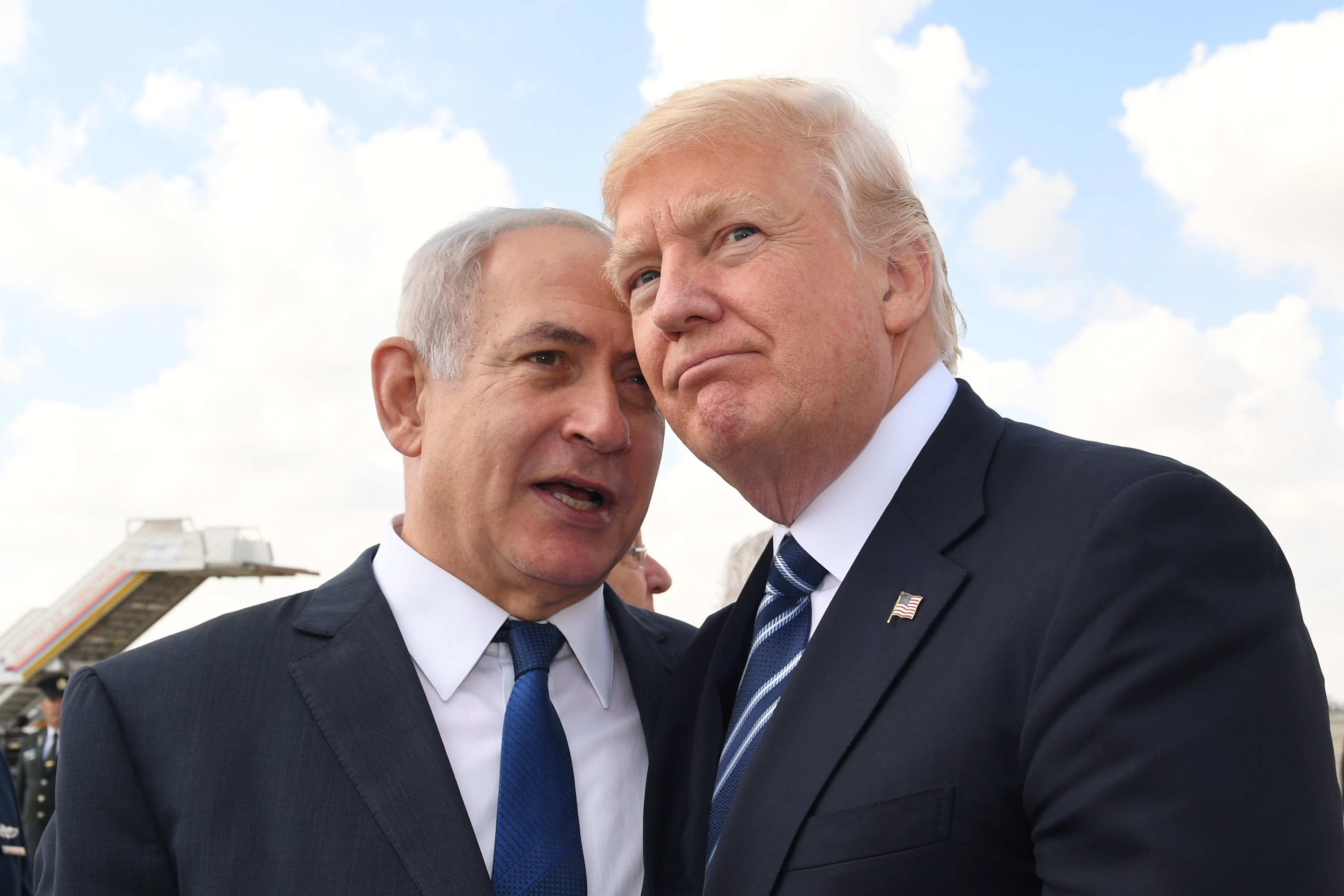
(Photo: Thomas Coex/AFP/Getty Images)
The Trump administration’s bid to move the United States embassy from Tel Aviv to Jerusalem will ignite conflagrations far beyond the Middle East, many academics, activists, and diplomats warn. But as with brinkmanship in North Korea and elsewhere, it seems warnings won’t stop this White House from a symbolic gesture that could usher in unprecedented violence.
“The president has always said it is a matter of when, not if. The president is still considering options and we have nothing to announce,” a Department of State spokesperson tells Pacific Standard.
On Tuesday, President Donald Trump called Palestinian President Mahmoud Abbas to inform him that he would move the U.S. embassy to Jerusalem, the Palestinian government’s official Wafa news agency reported.
Administration officials have told the press that Trump is likely to announce on Wednesday whether he will move the embassy, recognizing Jerusalem as Israel’s capital.
French President Emmanuel Macron warned against the move. Turkish Deputy Prime Minister Bekir Bozdag cautioned it would “drag the region into a new disaster,” British newspaper the Telegraph reported. But the fallout could be certain to be much broader in scope, as Western powers—Israel’s allies in Washington and Western Europe—and Palestine’s supporters in the East and Global South would then intervene.
The move would effectively quash any hope for Palestinians—particularly those living in Jerusalem—that the international community will hear its human rights concerns through political dialogue.
The 1947 partition plan that led to Israel’s founder mandated that Jerusalem—a city considered holy to the three Abrahamic religions—would be an international city governed by the United Nations. In 1967, Israel occupied the city and, roughly a decade later, annexed it in a move not recognized by the international community. In addition to facing frequent extrajudicial killing by law enforcement, demolition of their homes, and restricted access to their holy sites, Palestinian-Jerusalem residents are—legally speaking—non-citizens in their own hometown; where Jerusalem’s Israeli residents are born with full Israeli citizenship, Palestinians born in Jerusalem receive residency status, which they lose if they live away for more than seven years.
Israel maintains in its Basic Law that Jerusalem is “complete and united” as the nation’s capital.
The U.S.’s position has, in previous administrations, been that the issue of Jerusalem’s standing “would have to be resolved as a result of negotiations between the two parties involved,” says James Gelvin, a history professor at the University of California–Los Angeles and author of The Israel Palestine Conflict.
But Trump’s bid appears to be governed by a mandate to undo all precedent, particularly from his predecessor Barack Obama’s policies of measured detente.
A bid to move the embassy or recognize Jerusalem as Israel’s capital, both of which are equally dangerous, “would be a direct contradiction to every U.S. administration since 1967,” Gelvin adds.
“This would completely upend America’s position as mediator in the conflict and further weaken its position in the region. The Trump administration likes to present its diplomacy in terms of bringing the fresh eyes of outsiders to diplomatic problems. A better metaphor would be a bull in a china shop.”
Neither Palestinian nor Israeli diplomats in Washington, D.C., were available for comment at the time of publication.
Palestinian-American rights activists were unsurprised by Trump’s actions. “He is reckless in his words and his actions, and this recklessness is dangerous to the whole world,” says Hatem Abudayyeh, national coordinating committee member at the U.S. Palestinian Community Network.

(Photo: Kobi Gideon/GPO via Getty Images)
That Trump has brought Jerusalem’s status into question “really means that Trump has no understanding or respect for history, the international community, or the rights of people and nations,” Abudayyeh adds. “But why would this surprise anyone? He has been a nightmare for black people, Latinos, other immigrants, women, Arabs, Muslims, working folks, and all the oppressed and marginalized in the U.S., so why would we expect anything different in regards to Palestinians or others in the Arab World, the Middle East, and beyond?”
The Palestinians, for their part, will be prepared to demonstrate against the move, Abudayyeh says. “The Israelis will not accept any political or diplomatic pressure, and they won’t get it from the U.S. anyway, so the pressure must instead come from the Palestinian resistance, in all its forms,” he adds.
Many Jewish Americans agree with Abudayyeh that Trump’s policy of breaking with traditional policy, informed by precedent and at least an ostensible commitment to human life endangers people on both sides of the divide.
A decision to move the embassy or to name Jerusalem as the capital of Israel would be “reckless, irresponsible and endangers the lives of Palestinians and Israelis,” says Rebecca Vilkomerson, executive director of Jewish Voice for Peace, an advocacy group that campaigns for the rights of Palestinians and Israelis. “Trump’s anticipated decision to solidify Israeli control over Jerusalem not only flies in the face of the international legal consensus, but also furthers the agenda of those who seek to re-cast a struggle for land, rights and sovereignty into a religious conflict.”
News of a potential move follows Trump’s controversial retweeting of anti-Muslim videos by a fringe right-wing British populist group. It appears now, judging by the widespread warnings against any sudden moves, that Trump might provoke a real-life cataclysmic religious conflict akin to the imagined one depicted in those videos.





